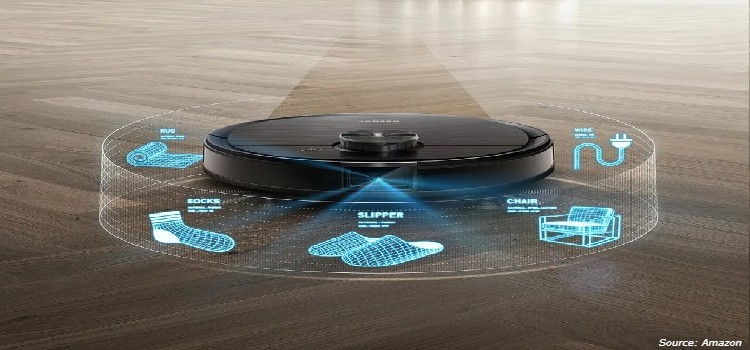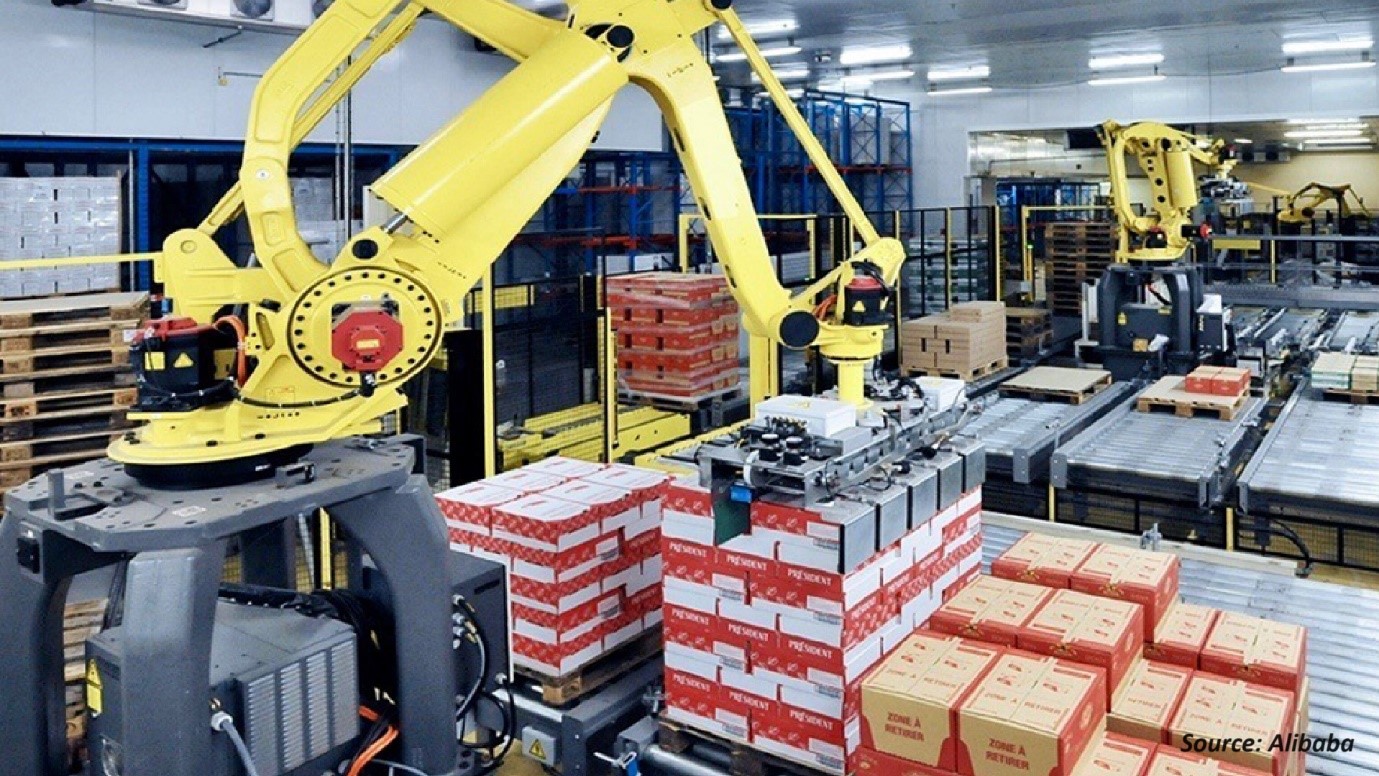
Japan Delta Robots Market by Axis Type (Double Axis, Three Axis, Four Axis, Five Axis, and Six Axis), by Payload Capacity (Up to 3 Kilogram, 3.1 to 8 Kilogram, 8.1 to 15 Kilogram, and More than 15 Kilogram), by Version Environment (Standard and Hygiene), by Application (Assembly, Pick & Place, Material Handling, Palletizing/Packaging, and Others), by Industry Vertical (Electronics, Cosmetics, Food & Beverages, Pharmaceuticals, and Others) – Opportunity Analysis and Industry Forecast, 2023–2030
Industry: ICT & Media | Publish Date: 11-Oct-2023 | No of Pages: 75 | No. of Tables: 59 | No. of Figures: 28 | Format: PDF | Report Code : N/A
Market Definition
Japan Delta Robots Market was valued at USD 177.55 million in 2022, and is predicted to reach USD 443.1 million by 2030, with a CAGR of 11.18% from 2023 to 2030. Delta or parallel robots are highly specialized robotic systems characterized by their unique mechanical structure and exceptional precision. These robots have three or more arms connected to a common base, forming a parallel mechanism that gives exceptional precision and structural stability.
Delta robots are renowned for their remarkable speed, agility, and accuracy, making them ideal for a wide range of high-speed, precision applications in manufacturing, electronics, food & beverage, pharmaceuticals, and others. The design of delta robots allows them to move with incredible precision in all three dimensions, such as assembly lines, pick-and-place operations, and intricate manufacturing processes. Making them particularly well-suited for tasks involving pick and place, assembly, packaging, and material handling.
Their parallel kinematic structure, a robotic system design where multiple limbs work parallel to control end-effector motion, enabling precise coordination and control, provides superior rigidity and stability, ensuring consistent and reliable performance. Depending on their specific configuration, they can handle various payloads, ranging from lightweight items to heavier components.
Thus, delta robots are a class of robotic systems renowned for their speed, precision, and versatility. Their unique parallel structure, including rigidity, speed, and stability, makes them a preferred choice for various high-speed automation tasks across multiple industries, contributing to increased efficiency and precision in modern manufacturing and assembly processes.
Influential Market Leaders Shaping the Delta Robot Industry in Japan
The presence of influential market leaders such as Fanuc Corporation, Kawasaki Robotics, and Yaskawa significantly shapes the landscape of the delta robot industry. These companies are actively involved in developing, producing, and distributing delta robots, driving innovation and competition in the market. Their expertise and extensive resources contribute to the continuous improvement of delta robot technology, making it more accessible and efficient for various industries.
For instance, in February 2023, Kuka introduced the KR 3 D1200, a novel delta robot optimized for food handling, capable of swift pick-and-place operations with a maximum payload of 6 kg. This exceptionally light and durable robot reduces maintenance costs and improves productivity.
Delta Robots Revolutionizing Electronics Manufacturing in Japan
In Japan's electronics sector, delta robots play an indispensable role, particularly in semiconductor handling and PCB assembly. Their significance lies in their exceptional precision and speed, attributes crucial for handling delicate and intricate electronic components. Delta robots ensure the precise placement of semiconductor chips and components on PCBs, reducing error rates and enhancing production efficiency.
As the electronics industry demands ever-increasing levels of accuracy and speed, delta robots have become the essential of this sector, contributing to the consistent quality and reliability of electronic products manufactured in Japan. Thus, it is expected to drive the growth of the market.
Competition Challenges for Japanese Delta Robot Manufacturers
The increasing competition between Japanese companies such as Yaskawa and Fanuc and German manufacturing firms can hinder market growth. To remain competitive in this landscape, Japanese delta robot manufacturers may need to focus on niche markets, customization, and cost-effective solutions while investing in research and development to keep pace with technological advancements.
Integration of Advanced Technologies to Enhance Precision Represents a Significant Opportunity for the Market
Integrating advanced technologies, such as computer vision and artificial intelligence (AI), to enhance precision represents a significant opportunity for the delta robot market. These cutting-edge technologies enable delta robots to operate more accurately and efficiently, opening up new avenues for applications across various industries.
The integration of computer vision and AI not only enhances precision but also improves overall productivity and reduces errors in manufacturing processes. This can result in cost savings, higher product quality, and increased competitiveness for businesses that leverage delta robots with these advanced technologies. As industries continue to embrace automation and demand higher precision and flexibility, the delta robot market is poised to benefit significantly from the opportunities created by integrating computer vision and AI.
Competitive Landscape
The Japan delta robots industry includes several market players such as ABB Ltd., Fanuc Corporation, Kawasaki Heavy Industries Ltd, Yaskawa Electric Corporation, FESTO, Weiss GmbH, Omron Corporation, IGUS GmbH, Cama Group, and KUKA AG.
Key Benefits
-
The Japan delta robots market report provides a quantitative analysis of the current market and estimations through 2023-2030 that assists in identifying the prevailing market opportunities to capitalize on.
-
The study comprises a deep dive analysis of the market including the current and future trends for depicting the prevalent investment pockets in the market.
-
The information related to key drivers, restraints, and opportunities and their impact on the market is provided in the report.
-
The competitive analysis of the market players along with their market share in the Japan delta robots market.
-
The SWOT analysis and Porter’s Five Forces model are elaborated in the study.
-
Value chain analysis in the market study provides a clear picture of the stakeholders’ roles.
Japan Delta Robots Market Key Segments
By Axis Type
-
Double Axis
-
Three Axis
-
Four Axis
-
Five Axis
-
Six Axis
By Payload Capacity
-
Upto 3 Kilogram
-
3.1 to 8 Kilogram
-
8.1 to 15 Kilogram
-
More than 15 Kilogram
By Version Environment
-
Standard
-
Hygiene
By Application
-
Assembly
-
Pick & Place
-
Material Handling
-
Palletizing/ Packaging
-
Primary
-
Secondary
-
-
Others
By Industry Vertical
-
Electronics
-
Cosmetics
-
Food & Beverages
-
Pharmaceuticals
-
Others
REPORT SCOPE AND SEGMENTATION:
|
Parameters |
Details |
|
Market Size in 2022 |
USD 177.55 Million |
|
Market Volume in 2022 |
92711 Units |
|
Revenue Forecast in 2030 |
USD 443.1 Million |
|
Growth Rate |
CAGR of 11.18% from 2023 to 2030 |
|
Analysis Period |
2022–2030 |
|
Base Year Considered |
2022 |
|
Forecast Period |
2023–2030 |
|
Market Size Estimation |
Million (USD) |
|
Growth Factors |
The electronics dominance. The presence of influential market leaders. |
|
Companies Profiled |
10 |
|
Market Share |
Available for 10 companies |
|
Customization Scope |
Free customization (equivalent up to 80 working hours of analysts) after purchase. Addition or alteration to country, regional, and segment scope. |
|
Pricing and Purchase Options |
Avail customized purchase options to meet your exact research needs. |
Key Players
-
ABB Ltd.
-
Fanuc Corporation
-
Kawasaki Heavy Industries Ltd.
-
Yaskawa Electric Corporation
-
FESTO
-
Weiss GmbH
-
Omron Corporation
-
IGUS GmbH
-
Cama Group
-
KUKA AG




 Speak to Our Analyst
Speak to Our Analyst


































